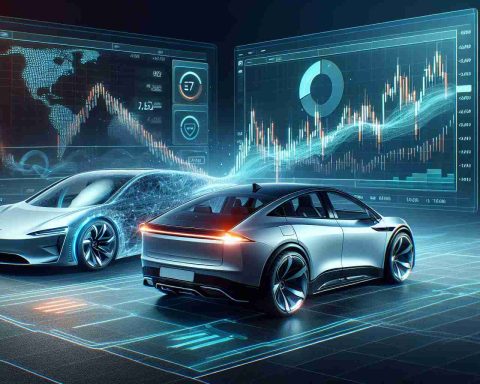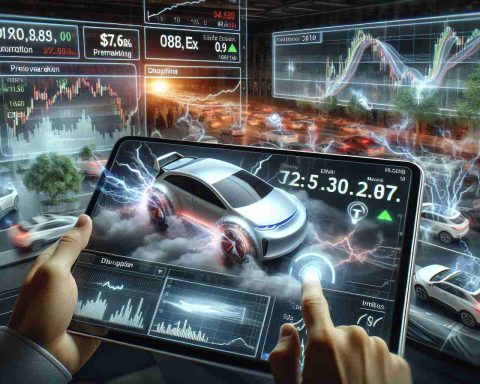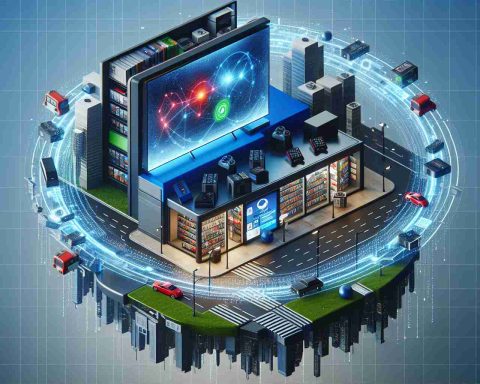A Bold New Direction for America’s Climate Agenda
In a surprising twist, President Donald Trump has declared the United States’ withdrawal from the Paris Climate Agreement, signaling a controversial kickoff to his second term. This decision saw him overturn the executive order instituted by former President Biden aimed at ensuring 50% of new vehicles sold in the country would be electric by 2030.
In his inaugural address, President Trump criticized the electric vehicle (EV) mandate as a threat to American jobs, assuring citizens that they would still have the freedom to select the cars they prefer. He emphasized the need to protect U.S. employment and voiced skepticism about international climate agreements that he believes allow other nations to pollute without consequences.
The announcement has sparked significant backlash from environmental advocates, global leaders, and climate activists who view it as a major setback in the fight against climate change. This marks the second instance of the U.S. withdrawing from climate commitments, following a similar action during Trump’s initial presidency.
Moreover, the fate of Rivian’s recently secured $6.6 billion loan from the Department of Energy hangs in the balance. This funding is crucial for the construction of a new facility designed to rival Tesla. Trump’s remarks surrounding potential cuts to EV subsidies and tax credits have raised alarms within the industry, prompting urgent discussions about the future of electric vehicles and climate policies in the U.S.
The Broader Implications of Shifting Climate Policies
The recent shift in America’s climate agenda under President Trump’s second term carries profound implications for society, culture, and the global economy. At its core, this decision represents a stark divergence from an evolving global consensus on environmental responsibility. Countries around the world, especially in Europe and rapidly industrializing nations like India and China, are doubling down on their climate commitments, recognizing the economic opportunities embedded within a green transition. The U.S. withdrawal risks alienating America from these burgeoning markets for clean technologies, potentially stunting innovation and economic growth at home.
Moreover, the cultural ramifications are notable— the shift away from electric vehicles could disenfranchise environmentally conscious voters and younger generations invested in sustainable living. Public perception of corporate accountability is shifting; businesses emphasizing environmental stewardship may find themselves at odds with government policy, leading to a potential backlash from consumers.
Environmentally, this pivot could exacerbate the existing crisis, with time running short to avert catastrophic climate stability breaches. The U.S. withdrawal from the Paris Agreement may embolden other nations to regress on their commitments, creating a domino effect where global pollution could rise unchecked.
As we look toward the future, the long-term significance of these policies will likely influence the pace of technological development in green energy, as well as foster broader societal debates about climate justice and responsibility across generations. Climate change remains a pressing global challenge; therefore, the path that the U.S. takes will reverberate far beyond its borders, impacting international relations and environmental stewardship worldwide.
Trump’s Climate Strategy: Navigating the Future of Electric Vehicles and Environmental Policy
The Current Climate Landscape
In a significant shift, President Donald Trump’s recent decision to withdraw the United States from the Paris Climate Agreement has reignited the national conversation around climate policy and employment. His announcement coincided with the reversal of key initiatives aimed at promoting electric vehicles (EVs), adding uncertainty to the automotive industry and environmental advocacy.
President Trump’s Stance on Electric Vehicles
In his inaugural address, President Trump positioned the electric vehicle mandate introduced by former President Biden as an impediment to American job growth. He underlined his commitment to protecting jobs by stating that Americans should have the freedom to choose the vehicles they drive. This argument resonates with a segment of the population that prioritizes traditional fuel vehicles over EVs, viewing the transition as a potential economic threat.
Implications for the EV Industry
The cancellation of the EV mandate raises important questions about the future of electric vehicle production in the U.S. industry. The proposed initiative aimed at ensuring that 50% of new vehicles sold were electric by 2030 has now been halted, leading to fears among manufacturers and investors about the long-term viability of EV projects.
# Pros and Cons of the Withdrawal
Pros:
– Relief for traditional auto manufacturers reliant on internal combustion engines.
– Potential stabilization of jobs in sectors associated with traditional vehicle production.
Cons:
– Setback in the race toward sustainable and renewable energy sources.
– Decreased investment in over 200,000 jobs linked to the EV industry.
– Increased skepticism from global partners about U.S. commitment to international climate agreements.
The Future of Rivian and Other EV Startups
The announcement casts doubt on the future of substantial investments in electric vehicle technology. Rivian, a promising EV startup, has secured a crucial $6.6 billion loan from the Department of Energy for expansion plans. However, Trump’s comments suggesting cuts to EV subsidies and tax credits have raised concerns that might jeopardize such funding and the company’s growth trajectory.
Market Trends and Predictions
The U.S. automotive market is experiencing dynamic changes driven by consumer preferences and technological advancements. Despite potential setbacks, several trends remain relevant:
1. Increased Consumer Interest in Sustainability: A considerable segment of the American population is still leaning towards environmentally friendly vehicles, suggesting that consumer demand could push the market towards EVs regardless of policy changes.
2. Global Market Dynamics: As other nations enhance their commitments to climate agreements, the U.S. may face pressure to align with global trends, inadvertently leading to a shift in strategy even amidst current policies.
3. Technological Innovations: Advances in battery technology and renewable energy sources may lower production costs and improve vehicle performance, keeping interest in EVs strong.
Conclusion and Insights
President Trump’s current climate strategy has ignited widespread debate and concern regarding the future of America’s reliance on electric vehicles and sustainability initiatives. As the U.S. decides its role on the world stage concerning climate change, the intersection between job preservation and environmental responsibility will remain a contentious topic.
For more insights into the evolving climate policies and their implications on the automotive industry, visit White House for the latest updates.












